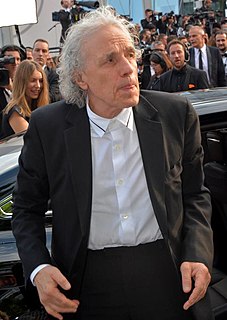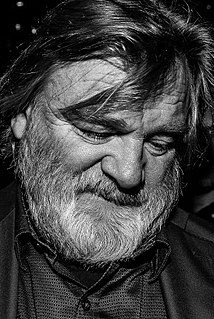A Quote by Drew Pinsky
Trauma super charges addiction and makes it really bad. It doesn't necessarily cause it, though it can trigger it. It's not necessarily the issue but if you have bad addiction, it's there.
Related Quotes
The opposite of addiction is human connection. And I think that has massive implications for the war on drugs. The treatment of drug addicts almost everywhere in the world is much closer to Tent City than it is to anything in Portugal. Our laws are built around the belief that drug addicts need to be punished to stop them. But if pain and trauma and isolation cause addiction, then inflicting more pain and trauma and isolation is not going to solve that addiction. It's actually going to deepen it.
Once and for all, people must understand that addiction is a disease. It’s critical if we’re going to effectively prevent and treat addiction. Accepting that addiction is an illness will transform our approach to public policy, research, insurance, and criminality; it will change how we feel about addicts, and how they feel about themselves. There’s another essential reason why we must understand that addiction is an illness and not just bad behavior: We punish bad behavior. We treat illness.
It seemed that the problem of Americans overdosing and dying from drug addiction was being described as bad people, particularly kids, who were abusing good drugs. But Sheila Nevins, the president of HBO Documentary Films, and I were particularly interested in finding out the stories of people and families who had been ravaged by this disease of addiction and understanding what really was happening. What we found was that, and let's not make any mistake about it, this is an epidemic of addiction.
There's traditionally been two different ways of seeing addiction. Either it's a sin and you're a horrible bad person and you are just choosing to be hedonist or it's a chronic progressive disease. And while I certainly believe addiction is a medical problem that should be dealt with by the health system, the way we've conceptualized addiction as a disease is not actually accurate, and it has unfortunately become stigmatizing and it's also created a lot of hopelessness in a lot of people.
I really wish this wasn't a thing. But this tumor is a thing. Even though it's not what I would have chosen for myself, that doesn't necessarily mean it has to be all bad. What I keep trying to remind myself is this is one of those things that looks like a really bad thing on the outside but I know too little about life to be sure.
I hope 'Warning: This Drug May Kill You' documentary helps to show the humanity of the people who are struggling with the brain disease of addiction because that is what this is - this isn't about bad people, this is about good people who became addiction oftentimes in the process of being prescribed medication for pain.
However, there probably is a slight connection between the high-wire, super sensitivity, open to everything and too much, and slightly fragile soul of the artist and the need to self-medicate, which can lead to bad trouble either in drugs, or alcohol. So it's not that there's no connection, it's just that we can't make too much of it because it isn't the addiction that's the issue, it's the fragility of some people who do artistic work, who end up in rehab somewhere or other.

































